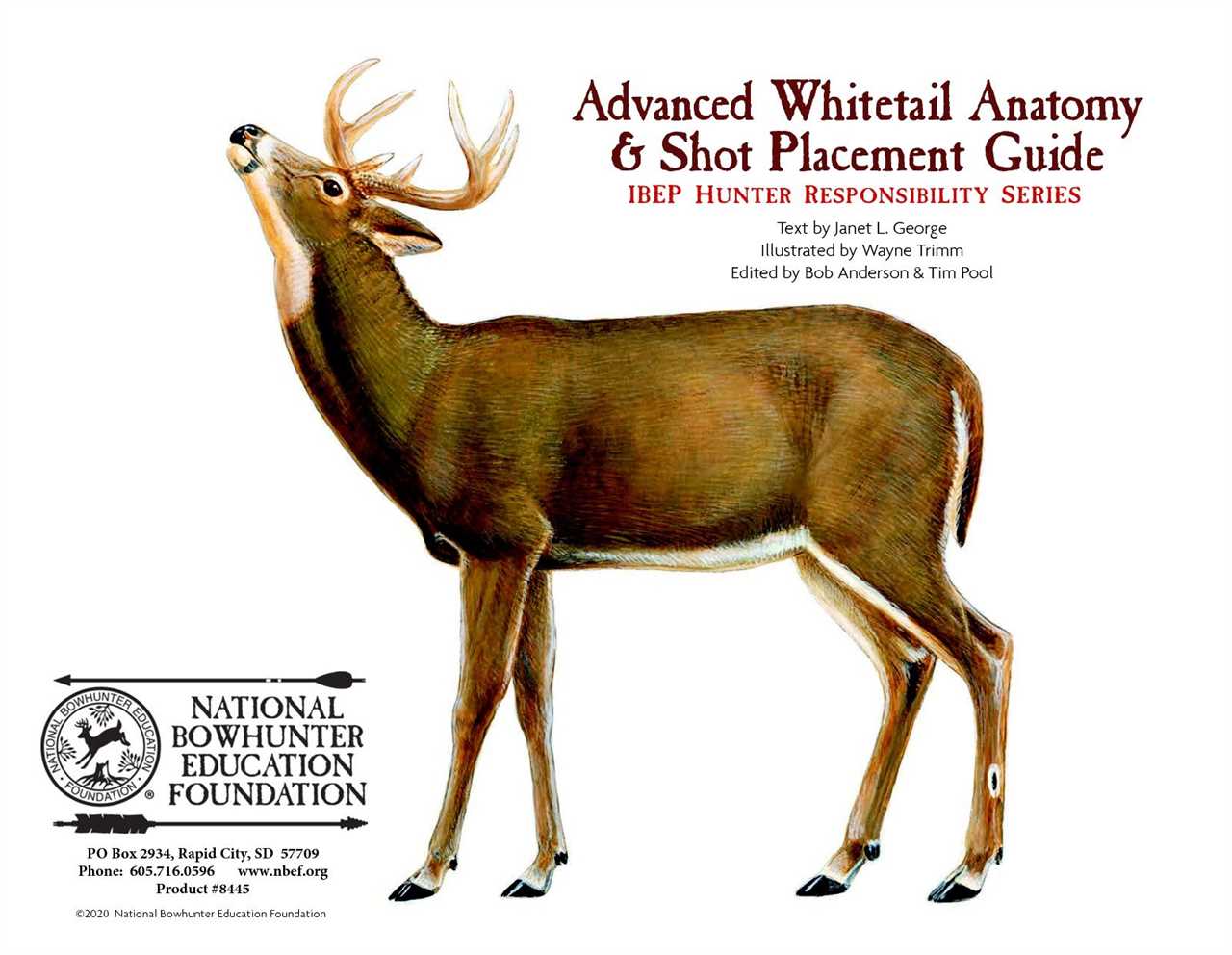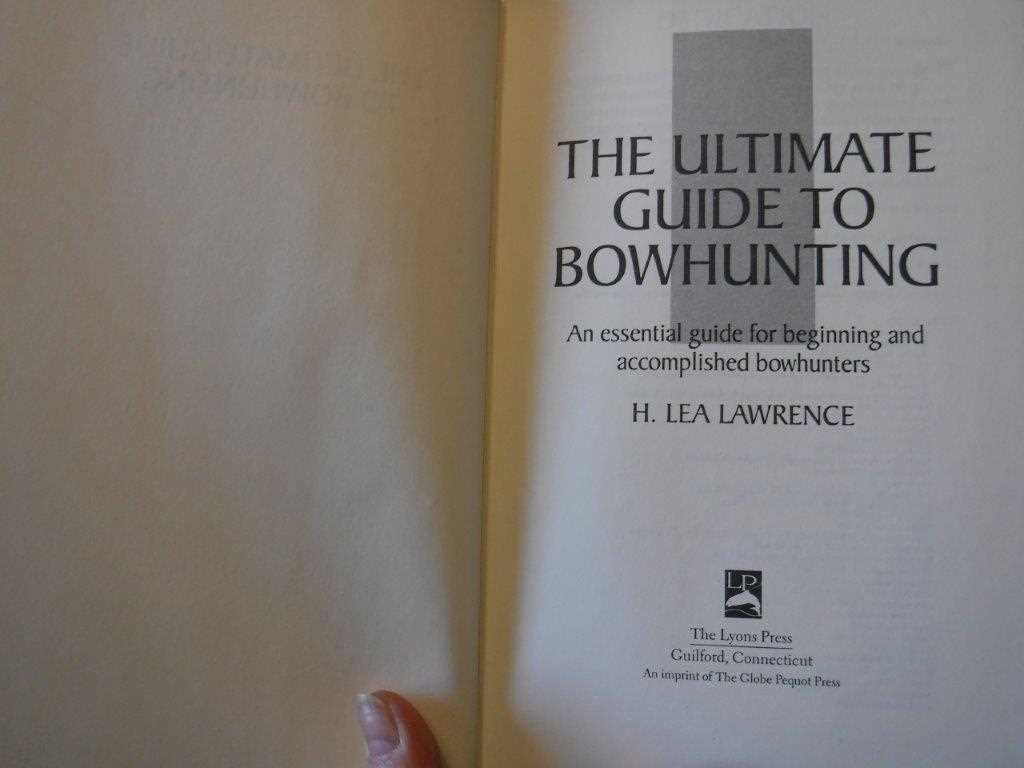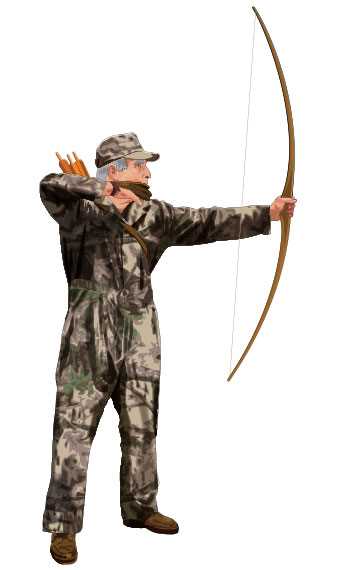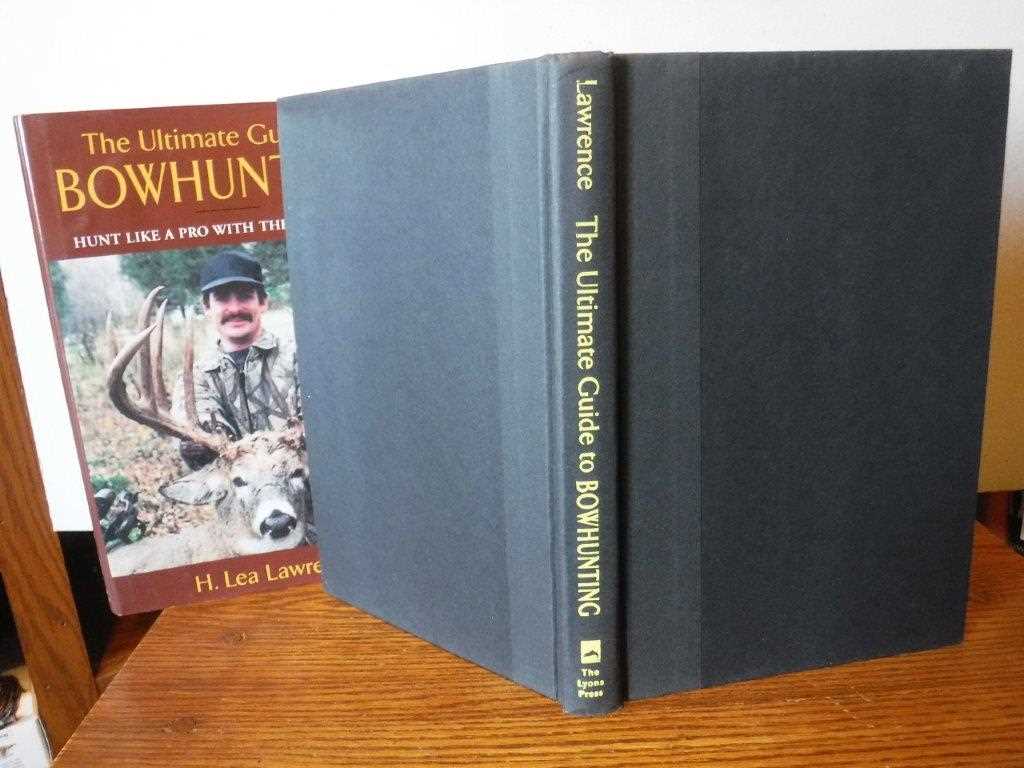Contents
Developing the Essential Traits and Behaviors of Responsible Bowhunters: An In-depth Guide

Bowhunting is not just a sport, it is a way of life for many outdoor enthusiasts. It requires a unique set of traits and behaviors, rooted in ethical values and a deep respect for wildlife and their habitats. In this ultimate guide, we will explore the key characteristics that make a bowhunter responsible and ethical.
Patience is perhaps the most crucial trait for a bowhunter. Unlike other forms of hunting, bowhunting requires getting up close and personal with the target. This requires spending hours in silence, waiting for the opportune moment to take a shot. A responsible bowhunter understands the importance of patience and is willing to wait for as long as it takes to make a clean and ethical kill.
Caring for the wildlife and the environment is another important responsibility of a bowhunter. The love for nature and animals goes beyond the thrill of the hunt. A responsible bowhunter is a steward of the land, ensuring that their actions do not harm the delicate balance of the ecosystem. They strive to leave the environment in a better condition than they found it by practicing sustainable hunting and conservationist efforts.
Safety is an integral part of responsible bowhunting. A bowhunter must be well-versed in the use of their equipment and follow strict safety guidelines. They must also have a thorough understanding of the area they are hunting in, including its terrain and any potential hazards. Safety precautions should be taken not only for the hunter’s well-being but also to ensure the welfare of other hunters and any bystanders.
Section 1: Understanding Bowhunter Responsibility

In the world of bowhunting, a responsible mindset is crucial. Patience, safety, and caring for both wildlife and fellow hunters are key traits for any bowhunter. A bowhunter embodies the values of a conservationist, demonstrating a commitment to the environment and wildlife preservation.
Bowhunting is not just about hunting; it requires being a skilled and ethical hunter. A responsible bowhunter understands the importance of precision and accuracy when it comes to taking down game. They prioritize practicing their shot and mastering their equipment to minimize suffering and ensure humane kills. They utilize their skills to track and locate wounded animals, making every effort to recover them.
Furthermore, a responsible bowhunter respects and follows all hunting laws and regulations. They understand the importance of maintaining healthy wildlife populations and adhering to bag limits and hunting seasons. They strive to be good stewards of the land and take part in efforts to conserve habitat and support wildlife management organizations.
Ultimately, the understanding of bowhunter responsibility goes beyond the act of hunting. It encompasses a mindset that values patience, responsibility, safety, caring, and conservation. By embodying these traits and behaviors, bowhunters can contribute to the preservation of wildlife and the continuation of ethical hunting practices.
Importance of Responsible Bowhunting

A responsible bowhunter understands the need for patience, waiting for the perfect shot and ensuring a quick and humane kill. They are well-educated about the animals they hunt and take the time to familiarize themselves with proper shot placement to minimize suffering.
Responsible bowhunters also prioritize safety, not only for themselves but for others who may be sharing the wilderness. They consistently practice safe archery techniques, use well-maintained equipment, and follow all applicable hunting regulations.
Hunting, when done responsibly, plays a crucial role in wildlife management and ecosystem balance. Responsible bowhunters understand this and actively participate in conservation efforts. They support organizations that work to preserve habitats, protect endangered species, and promote sustainable hunting practices.
In addition to being skilled archers and knowledgeable outdoorsmen, responsible bowhunters are ambassadors for their sport. They lead by example, demonstrating respect for wildlife, private property, and fellow hunters. They engage in ethical hunting practices, such as passing up shots that are beyond their skill level or shooting distance, and abide by fair chase principles.
The importance of responsible bowhunting cannot be overstated. It is the duty of each bowhunter to uphold the traditions of their sport and ensure its future. By practicing conservation, caring for the land, and behaving ethically, responsible bowhunters help safeguard the future of hunting for future generations.
Ethics and Morality in Bowhunting
- Caring: We must care deeply for the animals we hunt and the natural world around us. It is our duty to ensure that our actions as hunters do not cause unnecessary harm or suffering.
- Hunting: Bowhunting is not just about the thrill of the chase, but also about the respect and appreciation for the natural instinct of the prey. Hunting should be done with compassion and gratitude.
- Safety: We must prioritize safety at all times. This means practicing proper shooting techniques, knowing our equipment inside and out, and always putting the safety of ourselves and others first.
- Ethical: Our actions as bowhunters should align with a strong moral code. We should follow all hunting laws and regulations, and only take shots that we are confident will result in a quick and humane kill.
- Skilled: Bowhunting requires a high level of skill and proficiency. We must constantly strive to improve our abilities through practice and education, ensuring that we are effective and responsible hunters.
- Stewardship: We have a responsibility to protect and preserve the natural world for future generations. This means being mindful of our impact on the environment and actively participating in conservation efforts.
- Patience: Bowhunting requires patience and discipline. We must be willing to wait for the right moment and make ethical decisions, even if it means passing up on a shot.
- Responsible: Ultimately, we are responsible for our actions as bowhunters. This includes respecting private property, being conscious of our role in the hunting community, and representing our sport in a positive and ethical manner.
By embodying these ethics and moral values, we can ensure that bowhunting remains a respected and sustainable pursuit for generations to come. Let us strive to be not only skilled hunters, but also stewards of the land and ambassadors for our sport.
Legal Considerations for Bowhunters
Bowhunting is a cherished tradition that involves more than just the thrill of the hunt. It requires a sense of stewardship for the natural environment and a caring attitude towards wildlife. Ethical and responsible bowhunters understand the importance of following the law to ensure the sustainability of hunting for future generations.
One of the key traits of a responsible bowhunter is being knowledgeable about hunting regulations and laws. It is essential to stay informed about specific hunting seasons, bag limits, and any special requirements or restrictions in your area. This includes understanding where it is legal to hunt and obtaining the necessary licenses and permits.
Bowhunters must also have the necessary skills and expertise to make ethical shots and ensure clean kills. This requires practice, patience, and precision. Responsible bowhunters understand that taking an ethical shot means being confident in their abilities and only taking shots that provide a high likelihood of a clean kill, minimizing any unnecessary suffering of the animal.
Conservation is another important consideration for bowhunters. Understanding and respecting wildlife conservation principles is crucial for preserving populations and habitats. Responsible bowhunters actively support conservation efforts through organizations dedicated to wildlife management and habitat enhancement.
Lastly, responsible bowhunters are considerate of private property rights and the rights of others. They seek permission from landowners before hunting on their property, and they respect any additional rules or guidelines put in place by the property owner. This includes respecting boundaries and leaving the area as they found it.
In conclusion, being a legal and responsible bowhunter involves more than just the act of hunting. It requires a combination of ethical behavior, skill, patience, and a commitment to being a conservationist. By ensuring compliance with hunting regulations and demonstrating responsible stewardship, bowhunters can continue to enjoy their passion while preserving the natural environment for future generations.
Section 2: Essential Traits of Responsible Bowhunters

Responsible bowhunters possess a unique set of traits that distinguish them from other hunters. These traits not only make them effective in the field but also ensure the safety of themselves, others, and the environment.
Caring is a fundamental trait that responsible bowhunters display. They have a deep appreciation for wildlife and understand the importance of maintaining balance in the ecosystem. This caring nature drives them to act responsibly and ethically in their hunting practices.
Patience is another crucial trait that responsible bowhunters possess. They understand that successful hunting requires waiting for the perfect shot and not rushing into taking an unethical shot. Patience allows them to make accurate and ethical kills while minimizing suffering.
Safety is the top priority for responsible bowhunters. They are well-versed in safety protocols and ensure that they are followed at all times. They strive to avoid accidents and take precautions to protect themselves and others during the hunting experience.
Responsible bowhunters also exhibit a sense of stewardship. They recognize that hunting is not just a sport but a responsibility. They actively participate in conservation efforts and support wildlife management programs to ensure the sustainability of game populations and habitats.
Being ethical is a core value for responsible bowhunters. They adhere to hunting regulations, respect property rights, and prioritize fair chase. They believe in hunting for sustenance, trophy selection, and population control, all while maintaining respect for the animals they pursue.
Lastly, responsible bowhunters are highly skilled. They continually hone their archery and hunting techniques to ensure clean and ethical kills. Skilled bowhunters understand the capabilities and limitations of their equipment and practice proper shot placement to minimize the chances of wounding an animal.
Overall, responsible bowhunters possess the caring, patience, safety, hunting, stewardship, ethical, conservationist, and skilled traits that are necessary for conducting responsible and ethical bowhunting. These traits not only contribute to their success as hunters but also play a crucial role in the preservation of wildlife and the environment.
Patience and Respect for Wildlife

As a bowhunter, it is of utmost importance to exhibit patience and respect for wildlife in all hunting situations. This not only ensures your own safety, but also promotes responsible and ethical hunting practices.
Hunting is not just about harvesting game; it is about caring for and stewarding the natural world around us. Skilled bowhunters understand the importance of patience in waiting for the right shot and respecting the animals they pursue.
Patience is a virtue that helps bowhunters make ethical and effective shots. It allows them to carefully observe their surroundings, take the time needed to aim accurately, and make a clean and humane kill. Rushing a shot can lead to wounded animals and unnecessary suffering. Patience is the key to making clean shots and ensuring the highest standards of ethical hunting.
Respecting wildlife goes hand in hand with patience. Bowhunters should always have a deep appreciation for the animals they hunt, understanding their behaviors, and habitats. They should strive to be knowledgeable conservationists who are dedicated to the well-being of wildlife populations and their habitats. This means actively participating in efforts to conserve and restore wildlife populations and habitats.
In conclusion, patience and respect for wildlife are essential traits for a bowhunter. These traits promote safety, responsible hunting, and caring for the natural world. By embodying these qualities, bowhunters can be both skilled hunters and ethical stewards of the environment.
Personal Discipline and Self-control

Personal discipline and self-control are essential traits for a responsible bowhunter. Patience is key when it comes to ethical hunting practices. A skilled bowhunter understands the importance of waiting for the perfect shot and not rushing into a situation that could harm the animal or compromise safety.
Being a responsible bowhunter means being a steward of the land and wildlife. It requires an understanding of the principles of conservation and an appreciation for the natural world. A caring bowhunter will always prioritize the well-being of the animals and their habitats.
Personal discipline and self-control also play a role in becoming a skilled bowhunter. Practice and honing one’s skills are necessary to become proficient with a bow. It takes discipline to consistently work on improving accuracy and technique.
Ultimately, being a responsible bowhunter means embodying the qualities of an ethical conservationist. It’s about being mindful of the impact one’s actions have on the environment and wildlife. Personal discipline and self-control are crucial in ensuring that hunting is carried out in a safe, respectful, and sustainable manner.
Compassion and Humane Treatment

In addition to being responsible and skilled hunters, bowhunters must also embody qualities of compassion and humane treatment towards wildlife. These traits are not only crucial for the ethical practice of hunting but also serve as a reflection of a bowhunter’s character and values.
The concept of compassion in hunting goes beyond simply taking an animal’s life. It involves a deep understanding and appreciation for the natural world and a caring attitude towards the animals being pursued. Responsible bowhunters prioritize the safety and welfare of the animals they hunt, ensuring clean and ethical kills.
A caring and compassionate bowhunter understands the importance of treating the animals with respect and dignity, both before and after the hunt. This includes taking the necessary precautions to minimize suffering and conducting humane practices, such as tracking wounded animals with patience and determination to ensure they are not left to suffer needlessly.
Bowhunters must also be ardent conservationists, recognizing that their actions have a direct impact on the environment and wildlife populations. This means practicing good stewardship by following all local hunting regulations, supporting wildlife conservation initiatives, and being mindful of their ecological footprint.
Compassion and humane treatment are integral parts of being a responsible and ethical bowhunter. By embodying these traits, bowhunters not only contribute to the preservation of wildlife but also set an example for others in the hunting community.
Section 3: Responsible Bowhunting Behaviors
Bowhunting requires a combination of patience, skill, and responsibility. Responsible bowhunters understand the importance of safety, stewardship, and conservation. They are dedicated to being a responsible and ethical hunter.
Patience: Responsible bowhunters understand that patience is key when waiting for the perfect shot. They know that rushing a shot can lead to wounded or lost game. They are willing to wait for the right opportunity, ensuring a clean and humane kill.
Safety: Safety is paramount for responsible bowhunters. They are diligent in practicing safe shooting techniques and follow all local laws and regulations regarding shooting distances and target selection. They wear proper safety gear and are mindful of their surroundings to prevent accidents.
Stewardship: Responsible bowhunters are stewards of the land. They respect the natural environment and ensure that they leave no trace while hunting. They are mindful of the impact they have on the habitats of wildlife and take steps to minimize their footprint.
Conservationist: Responsible bowhunters understand the importance of conservation. They recognize that hunting plays a vital role in wildlife management and take part in efforts to promote and support conservation initiatives. They strive to be responsible and ethical hunters, contributing to the sustainability of wildlife populations.
Skilled: Responsible bowhunters continually strive to improve their skills. They invest time in practicing shooting techniques, understanding animal behavior, and studying the land they hunt. They seek to be proficient and accurate in their shots to ensure a quick and ethical kill.
Responsible: Responsible bowhunters take personal responsibility for their actions. They follow all hunting laws and regulations and ensure they have the necessary licenses and permits. They act ethically, treating the game with respect and only taking shots that they are confident will result in a humane kill.
Ethical: Responsible bowhunters adhere to a strict code of ethics. They hunt for food, respect the animals they hunt, and value the overall experience of being in nature. They avoid unnecessary suffering and exemplify the highest standards of ethical hunting.
By exemplifying these responsible bowhunting behaviors, we can ensure that the tradition of hunting remains sustainable and respectful for generations to come.

A skilled hunter, dedicated conservationist, and advocate for ethical practices. Respected in the hunting community, he balances human activity with environmental preservation.
